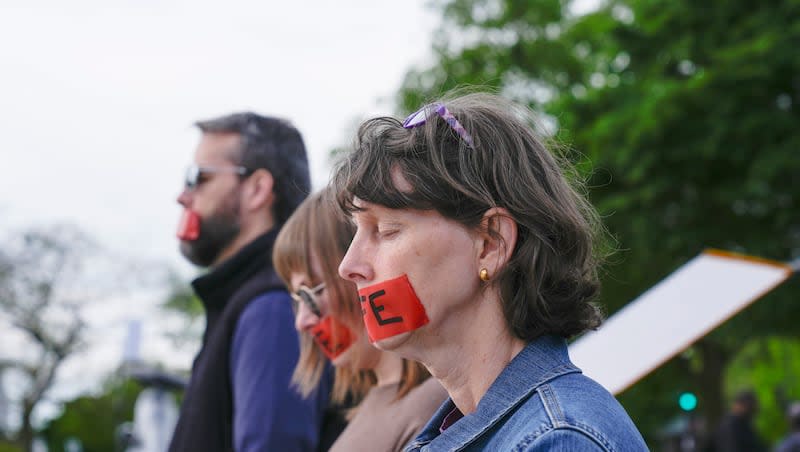Will the Supreme Court force changes to state abortion bans?

The Supreme Court on Wednesday heard the second abortion case of its current term, weighing whether federal law regarding emergency medical care should outweigh state-level abortion bans when the policies conflict.
During two hours of oral argument, the justices sparred with attorneys representing the Biden administration and the state of Idaho, where the case originated, debating whether a ruling in favor of state leaders would put women’s lives at risk.
Idaho abortion law
The case originated soon after the Supreme Court overturned Roe v. Wade in June 2022 and returned control over abortion policy to the states.
Idaho was set to enforce a near-total ban on abortion — the state’s law criminalizes providing an abortion except in cases of extreme threats to a mother’s health or cases involving rape or incest — when the Biden administration filed a lawsuit to block it, arguing that it conflicted with a federal law called the Emergency Medical Treatment and Labor Act.
“The Biden administration argued that EMTALA — which requires emergency rooms that participate in Medicare to provide ‘necessary stabilizing treatment’ — supersedes (the) Idaho law,” SCOTUSblog reported.
A federal district court ruled in favor of federal officials, but then the 9th U.S. Circuit Court of Appeals overturned that decision. On appeal in front of the full 9th Circuit, the Biden administration won again, as the Deseret News previously reported.
Then, in January, the Supreme Court agreed to take up the case and also said that Idaho’s abortion law could take effect at least until the justices issued their full ruling, which is expected by the end of June.
How will the Supreme Court rule?
Since the Supreme Court let Idaho’s law take effect, many court watchers believed the Biden administration would be fighting an uphill battle during oral arguments on Wednesday.
Elizabeth Prelogar, the U.S. solicitor general, did face tough questions, but so did Idaho lawyer Josh Turner.
“The questioning of the state of Idaho has been far more robust than many expected, with tough questions coming from conservatives, along with Justices Ketanji Brown Jackson, Elena Kagan and Sonia Sotomayor,” The Washington Post reported.
For example, Justice Amy Coney Barrett repeatedly questioned Turner’s presentation of Idaho’s policy.
“You’re hedging,” she said at one point.
Still, it seemed as if most of the justices were skeptical of the Biden administration’s claims and leaning toward allowing Idaho’s abortion law to remain in place.
“How can you impose restrictions on what Idaho can criminalize?” Justice Samuel Alito asked the solicitor general, according to The Washington Post.
Similarly, Justice Neil Gorsuch highlighted the potential danger of allowing federal officials to have too much control over health care norms.
As the debate took place inside the courtroom, protesters gathered outside the Supreme Court to either support or criticize Idaho’s law.
The New York Times reported that more than 100 people took part in demonstrations outside the building, carrying signs with messages like “Abortion saves lives” and “Pro-life. Pro-women.”

